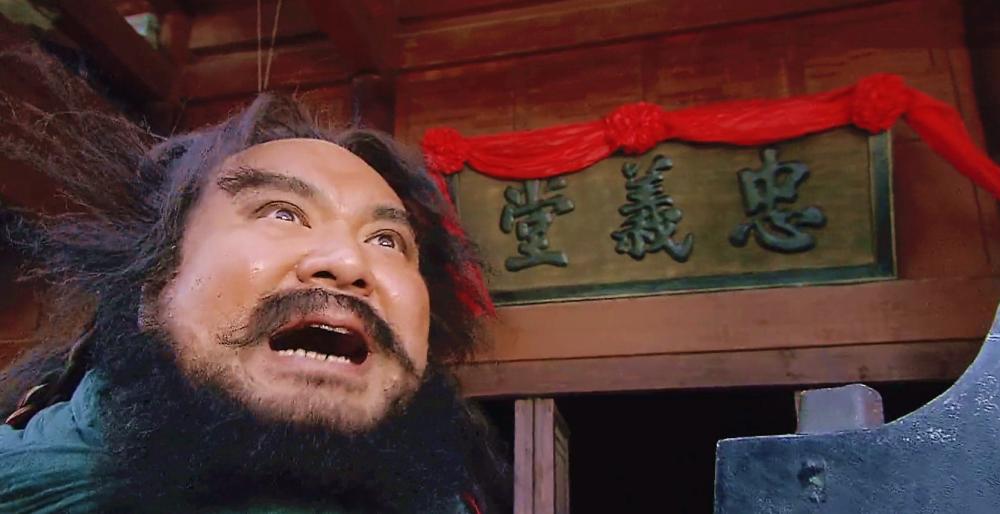The 108 generals in "Water Margin" each have their own distinct personality characteristics, not only these heroes and good men, but even those supporting villains, all have their own characteristics. These distinctive personality traits are one of the factors that attract us to Water Margin.
In addition to these, the portrayal of characters in the Water Margin is also permeated with the wisdom of the old ancestors everywhere. The ancients said that "people cannot be disguised", but they often said that "phase is born from the heart", in fact, no matter which kind of statement, there is a certain truth.
The ancestors of the ancient folk are actually more willing to believe that from a person's appearance, they can distinguish his personality and predict his life, and this method of knowing people by the ancestors is even more the wisdom of the folk people.

The description of Li Kui's appearance in the Water Margin is as follows: "Black bear-like coarse flesh, iron bull like naughty." With a word of red and yellow eyebrows, the eyes are red and silky. ”
Such a simple stroke depicts Li Kui's rough and untrimmed image.
Moreover, when people look at such a description, they will know that Li Kui is an irritable, grumpy person, who does not have many city governments, and his living conditions are relatively poor.
So, why do we hear such a description, Li Kui's character goes deep into our hearts?
In fact, this is related to the influence of traditional culture on us.
Let's start with the skin.
What does Li Kui's skin look like? It is "coarse meat" and "naughty". What does that mean? Naughty is to say that Li Kui's skin is rough. Coarse meat, on the other hand, is the opposite of "fine skin and tender meat".
The ancients said that "the flesh of the nobles is as smooth as moss, and the tight skin of the flesh is the most unbearable", which means that the skin of the nobles is delicate and silky, and the "naughty flesh" is naturally not noble, or even the most unbearable.
Such a statement may not be supported by any scientific theory, but in the eyes of the ancestors, this is a kind of experience of knowing people summed up by the ancestors.
Let's talk about "adding a word of red and yellow eyebrows".
What does this mean? It refers to Li Kui's eyebrows, which have two characteristics, one is two eyebrows intertwined, and the other is reddish yellow.
The ancients said: "The eyebrow crosser, poor and thin", which means that the eyebrows intersect, indicating that this person is not only poor and shallow, but also ignorant, and will not develop and be noble. There is also such a sentence "Eyebrows are not divided, early division is returned to the grave", which means that eyebrows like Li Kui may have a short life.
At the same time, "a word of red and yellow eyebrows", in people's impressions, such a person, looks fierce and abnormal, and at the same time is a manifestation of fierce temperament.
Finally, it is said that Li Kui's "eyes are red and silky."
That is to say, there was a lot of blood in Li Kui's eyes. The ancients said that "red eyes invade the pupils, and officials are heavy", saying that if there is blood in the eyes, there will inevitably be lawsuits in life. Then there is "those who are red-eyed, evil death", and this sentence also corresponds to Li Kui's ending!
Li Kui was finally tricked by Song Jiang into drinking poisoned wine, but didn't he confirm the phrase "evil death"?
The description of the appearance of the character in "Water Margin" is actually not only to create the external image of a character, but more importantly, to portray a three-dimensional character image with a distinct personality through the description of the external image of the character.
The reason why we see those descriptions, we will understand the general personality of a character, thanks to the influence of traditional culture. The art of knowing people handed down by the ancestors is not only our talk after tea and dinner, but also has penetrated deep into our bone marrow.
In their long-term lives, the ancestors have summed up a lot of methods of knowing people, and these methods of knowing people have influenced an era, until now, we can also find similar cultural imprints in our lives!